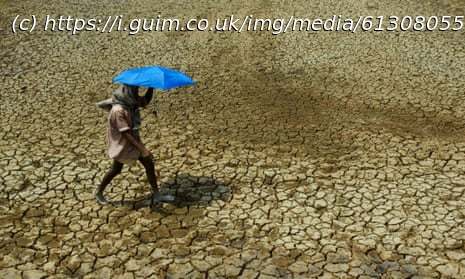Governments draw up blueprint for fund to be administered at first by World Bank after tense Abu Dhabi talks
Countries have agreed key measures to supply funds to the world’s most vulnerable people to repair the damage from climate breakdown.
Governments from richer and poorer countries drew up the blueprint for a new “loss and damage” fund after a tense two-day meeting under UN guidance in Abu Dhabi that ended late on Saturday night.
The loss and damage fund will be administered at first by the World Bank, and will draw on funding sources including large developing countries as well as the US, the EU and the UK. No firm target has been set for how much money the fund will disburse, but countries most affected by the climate crisis hope it will reach hundreds of billions of dollars within a few years.
The blueprint must be formally adopted at the Cop28 UN climate summit in Dubai at the end of this month, but this weekend’s agreement by the transitional committee, set up under the UN framework convention on climate change, means that is likely.
Avinash Persaud, a climate envoy for Barbados and the transition committee for Latin America and the Caribbean, said: “This was a challenging but critical outcome. We now have for the first time an instrument that will operationalise an international fund for grant-based financing of reconstruction, rehabilitation and relocation after extreme weather or slow onset events. This is an important step forward and will bring positive momentum to other climate actions.”
Developing countries made key concessions, such as agreeing that the fund could be managed on an interim basis by the World Bank. Developed countries also agreed language that implied they should be the key donors to the fund, as they would be “urged” to contribute while others would be “encouraged” to do so.
However, campaigners said the agreement was not enough to guarantee the funds needed for vulnerable countries, likely to reach trillions of dollars a year by the end of this decade.
Home
United States
USA — Financial ‘Loss and damage’ deal struck to help countries worst hit by climate...






